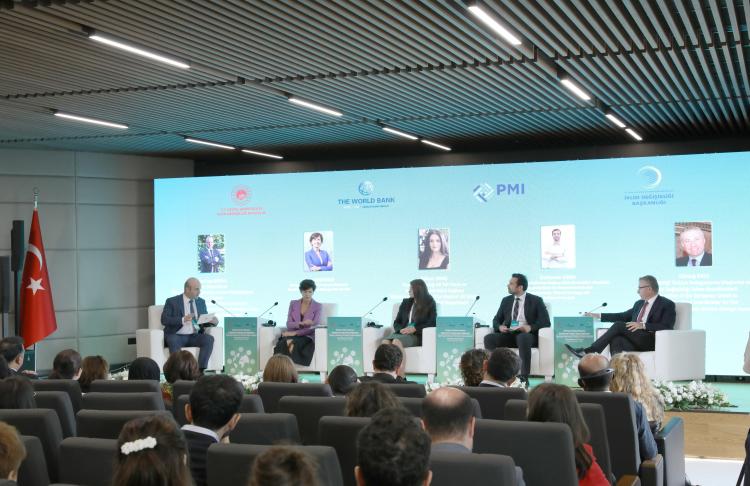The World Bank is supporting the Turkish government to implement a national emissions trading system (ETS) that could start as soon as 2025-2026. This project is part of a wider objective of net zero target of the Turkish economy by 2053 following the country’s National Determined Contributions (NDC).
Through the Partnership for Market Implementation, a World Bank initiative supporting 25 developing countries working on carbon pricing and carbon markets, the World Bank has supported the government of Türkiye to design and implement the ETS together with a national crediting system that will provide offsets to ETS entities.
The program has five components: (i) informing design decisions for the national ETS from its pilot phase to formal implementation; (ii) developing a domestic crediting system that could supply offsets and a certain level of flexibility to participants of the ETS; (iii) drafting a strategy for participation in international carbon markets; (iv) carbon pricing communication strategies; and (v) creating the underlying infrastructure for carbon pricing.
With the launch date of Türkiye’s pilot ETS fast approaching, the program will kickstart detailed work on the level of ambition and how this ramps up as the ETS moves into formal implementation. Another key focus is assessing how allowances will be distributed, what share should be auctioned and establishing emissions intensity benchmarks to inform allocation. Potential price management approaches for the ETS will also be explored. These can help governments manage price volatility and help the system better weather external shocks while achieving environmental outcomes.
"Setting a price on carbon is critical to driving investment and behavior change to lower emissions. ETSs, carbon taxes, carbon crediting, and international carbon markets each have a role to play to price carbon, channel finance, and meet our climate goals.” says Hania Dawood, Practice Manager for Climate Finance & Economics Unit at the World Bank. “The World Bank is supporting many countries to engage with the full range of carbon pricing policies. We are delighted that Türkiye becomes the 8th country in the ECA region to include an ETS as part of its strategy and, doing so, joins the global movement toward a low-carbon future."
An ETS – or cap-and-trade program – is managed by a jurisdiction that sets a limit on the total level of greenhouse gas (GHG) emissions for a certain sector of its economy. The allowances to emit are distributed to liable entities that must redeem them for every emitted ton of GHG, with the possibility to buy additional allowances or sell unused ones. An ETS is a quantity-based instrument offering certainty over the environmental outcome (the “cap”) but leaves it to the market (the “trade”) to set the price of emissions.
“With 36 emissions trading systems either in operation or in the pipeline, there is a diverse wealth of experience for Türkiye to draw from in designing its own system. One advantage of being part of the PMI is the ability to connect with carbon market practitioners from around the world, from the European Union to China, Chile and Canada, so that governments can freely share and compare how they are building and evolving their ETSs”, says Flavia Rosembuj, Program Manager of the Partnership for Market Implementation Facility, a donor-backed trust fund housed in the World Bank’s Climate Finance & Economics Unit.

